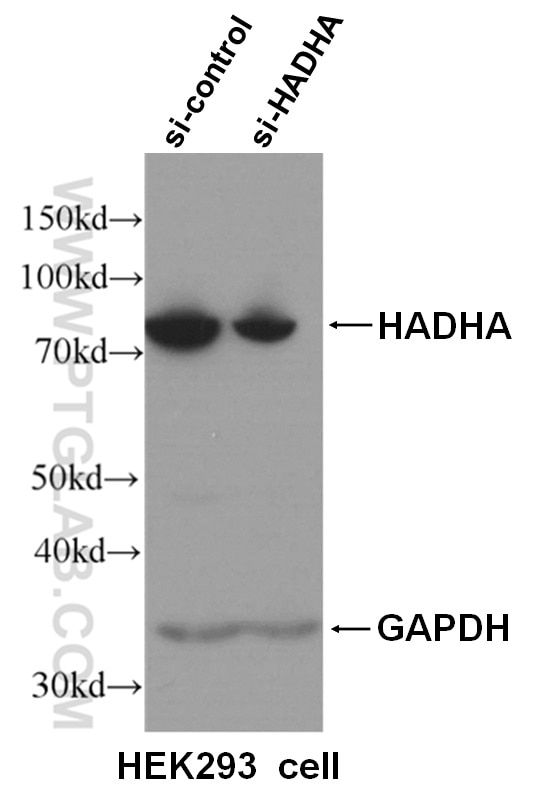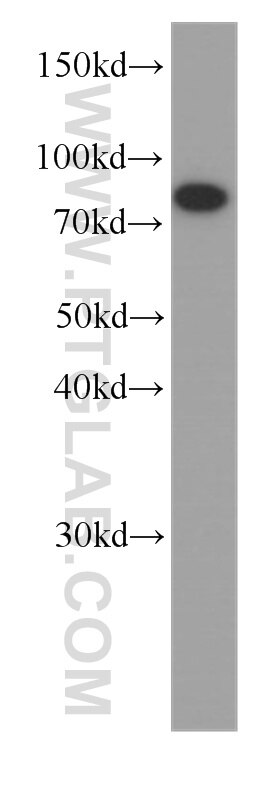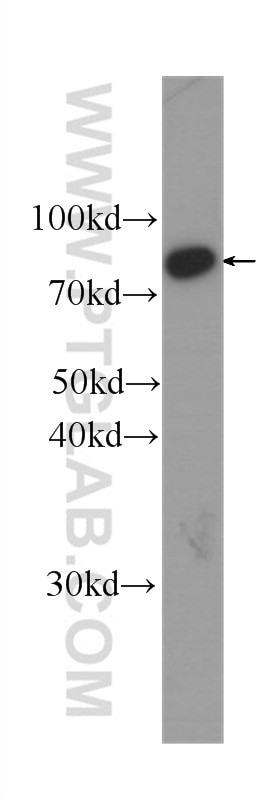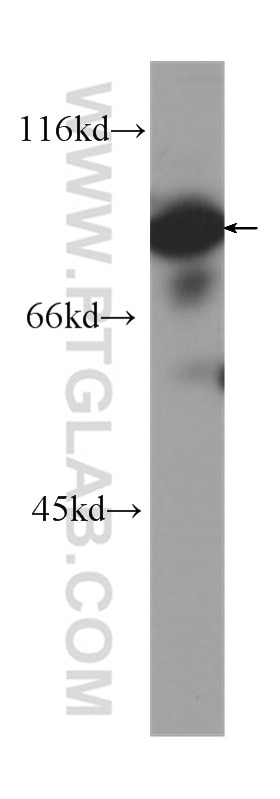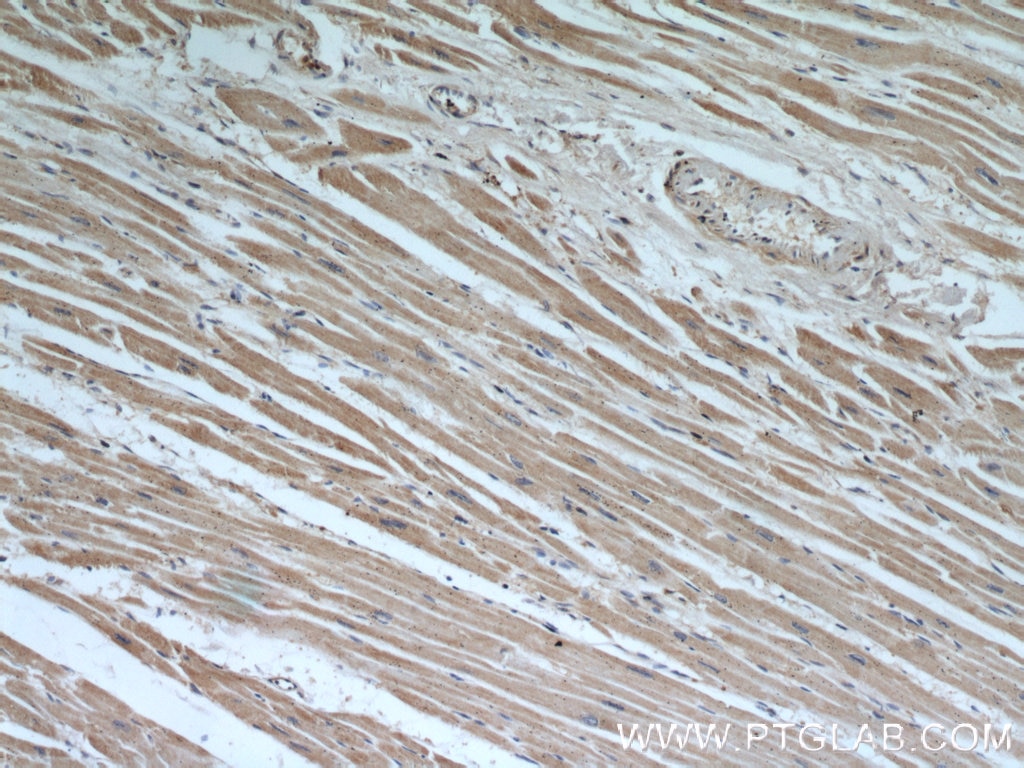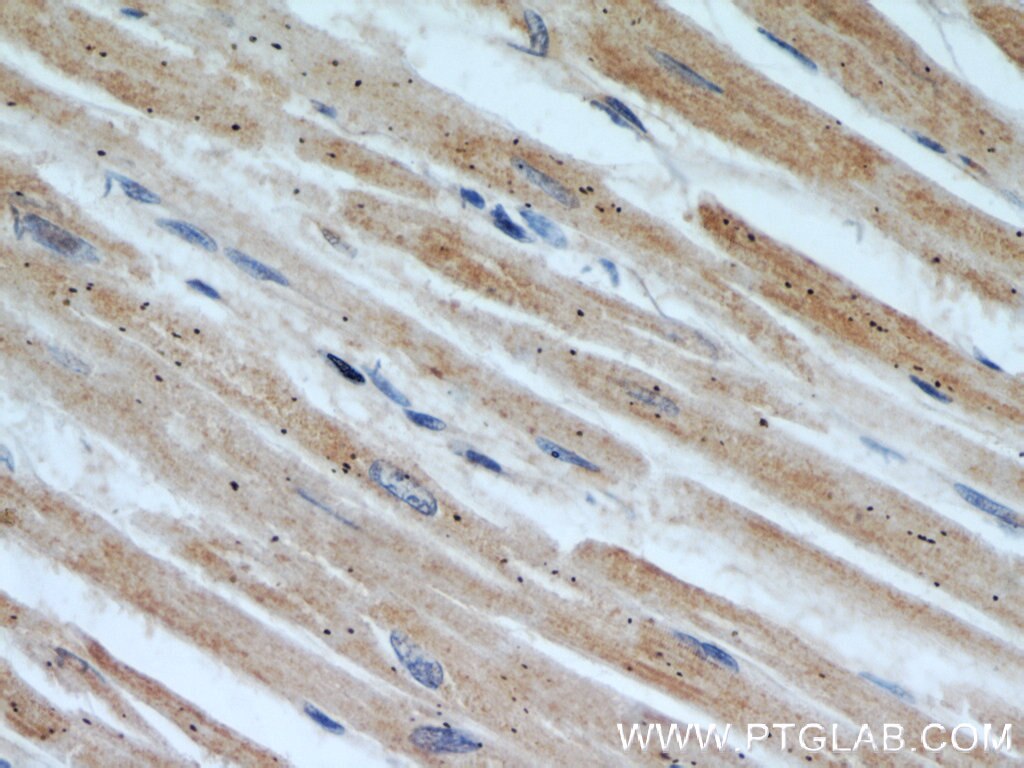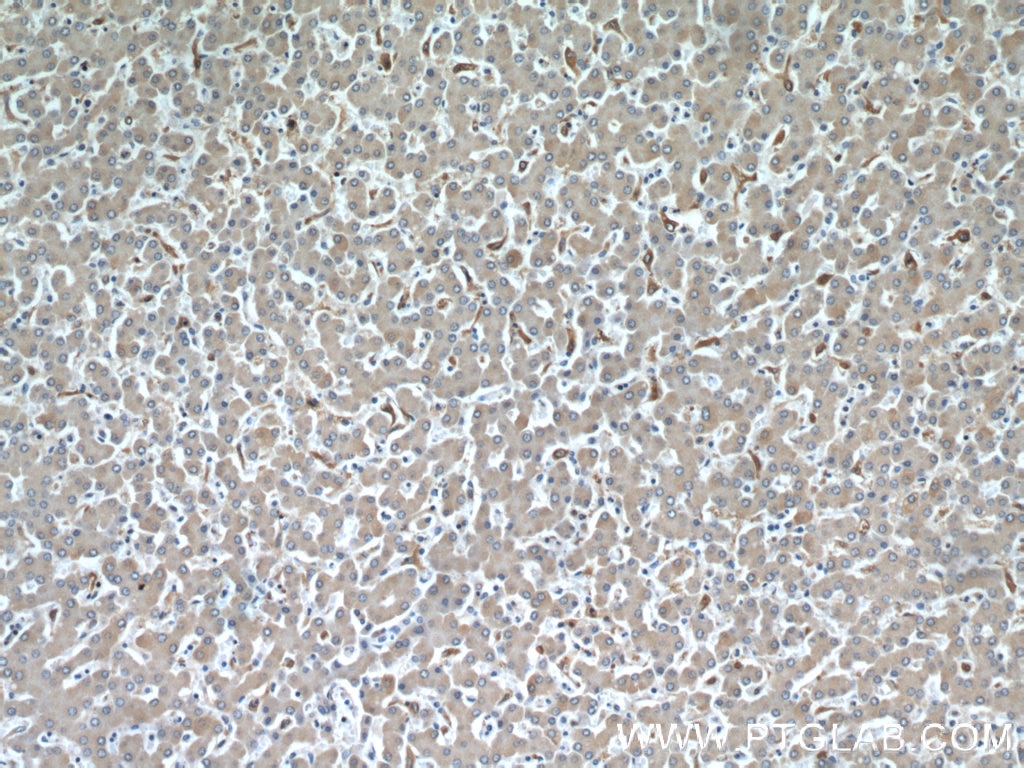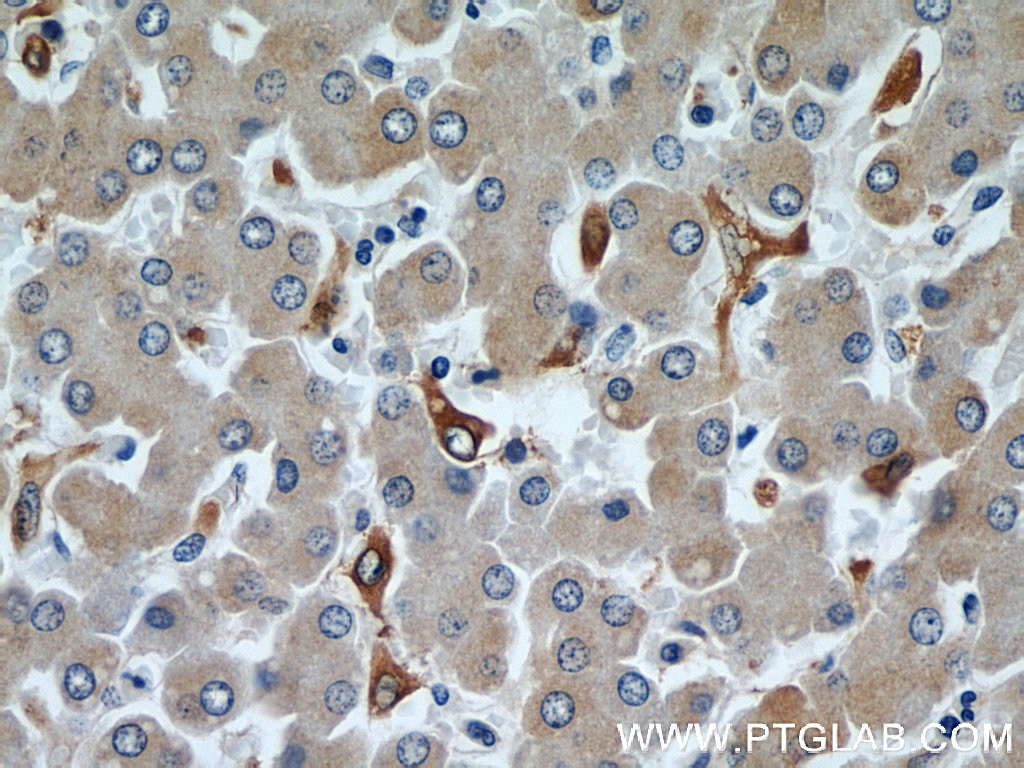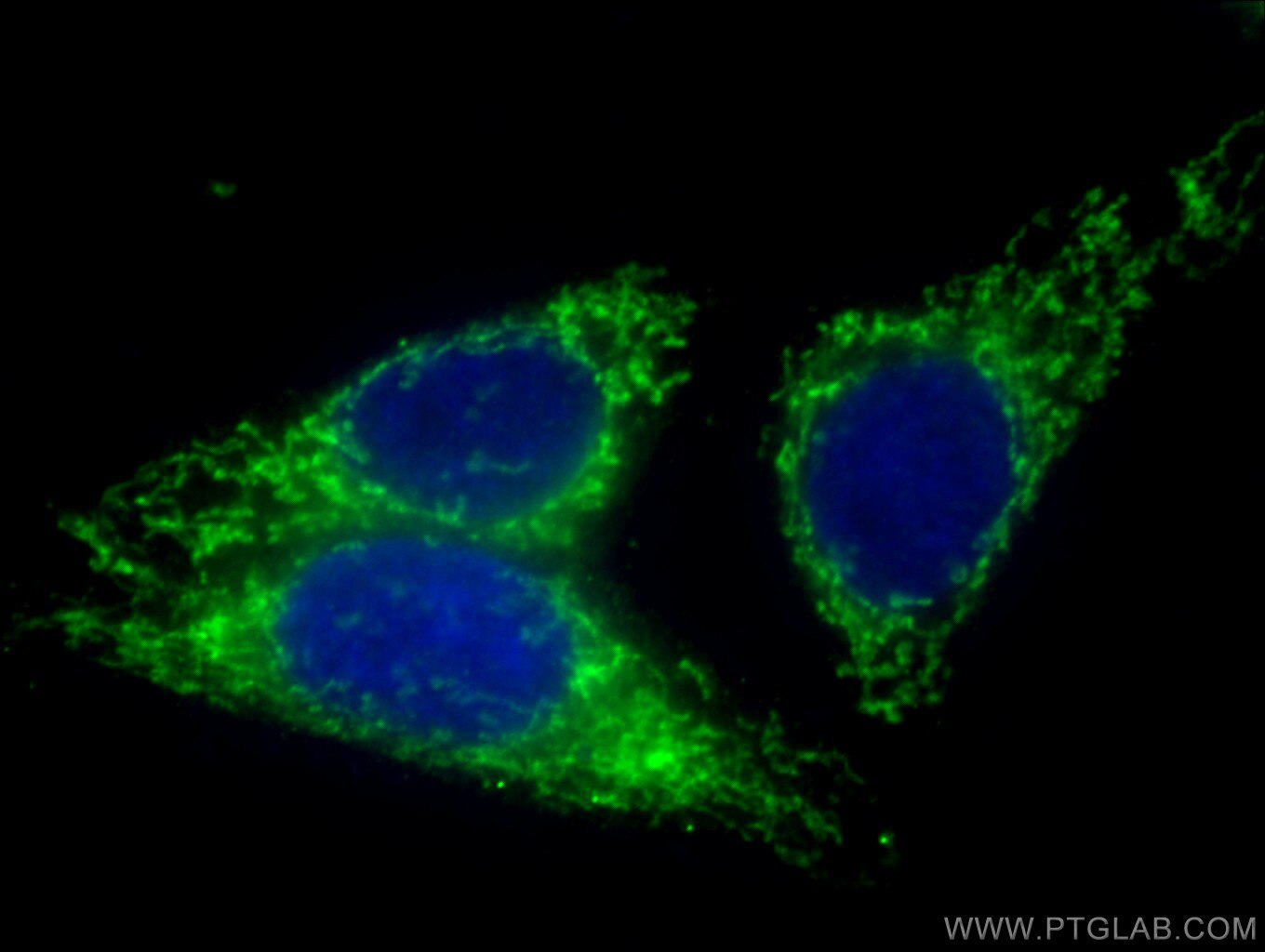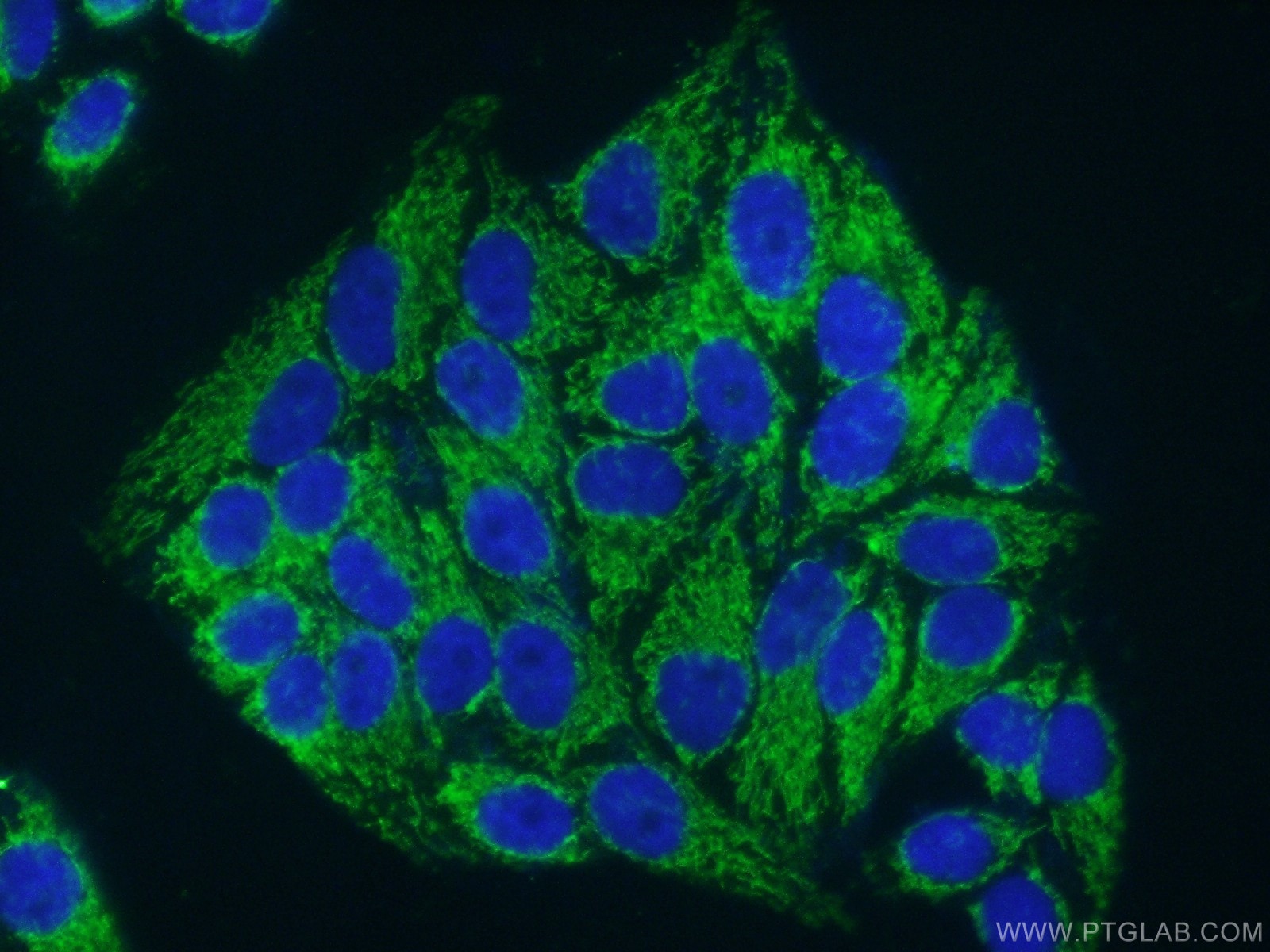- Featured Product
- KD/KO Validated
HADHA Monoclonal antibody
HADHA Monoclonal Antibody for IF, IHC, WB,ELISA
Host / Isotype
Mouse / IgG1
Reactivity
human, mouse
Applications
WB, IHC, IF, ELISA
Conjugate
Unconjugated
CloneNo.
3E9B1
Cat no : 60250-1-Ig
Synonyms
Validation Data Gallery
Tested Applications
| Positive WB detected in | A375 cells, HEK293 cells |
| Positive IHC detected in | human heart tissue, human liver tissue Note: suggested antigen retrieval with TE buffer pH 9.0; (*) Alternatively, antigen retrieval may be performed with citrate buffer pH 6.0 |
| Positive IF detected in | HepG2 cells |
Recommended dilution
| Application | Dilution |
|---|---|
| Western Blot (WB) | WB : 1:500-1:2000 |
| Immunohistochemistry (IHC) | IHC : 1:20-1:200 |
| Immunofluorescence (IF) | IF : 1:50-1:500 |
| It is recommended that this reagent should be titrated in each testing system to obtain optimal results. | |
| Sample-dependent, Check data in validation data gallery. | |
Published Applications
| KD/KO | See 1 publications below |
| WB | See 7 publications below |
Product Information
The immunogen of 60250-1-Ig is HADHA Fusion Protein expressed in E. coli.
| Tested Reactivity | human, mouse |
| Cited Reactivity | human, mouse |
| Host / Isotype | Mouse / IgG1 |
| Class | Monoclonal |
| Type | Antibody |
| Immunogen | HADHA fusion protein Ag1211 |
| Full Name | hydroxyacyl-Coenzyme A dehydrogenase/3-ketoacyl-Coenzyme A thiolase/enoyl-Coenzyme A hydratase (trifunctional protein), alpha subunit |
| Calculated Molecular Weight | 83 kDa |
| Observed Molecular Weight | 79 kDa |
| GenBank Accession Number | BC009235 |
| Gene Symbol | HADHA |
| Gene ID (NCBI) | 3030 |
| RRID | AB_2881371 |
| Conjugate | Unconjugated |
| Form | Liquid |
| Purification Method | Protein G purification |
| Storage Buffer | PBS with 0.02% sodium azide and 50% glycerol pH 7.3. |
| Storage Conditions | Store at -20°C. Stable for one year after shipment. Aliquoting is unnecessary for -20oC storage. 20ul sizes contain 0.1% BSA. |
Background Information
HADHA(Trifunctional enzyme subunit alpha, mitochondrial) is also named as HADH,78 kDa gastrin-binding protein.It belongs to the enoyl-CoA hydratase/isomerase family in the N-terminal section and the 3-hydroxyacyl-CoA dehydrogenase family in the central section.It harbors the 3-hydroxyacyl-CoA dehydrogenase and enoyl-CoA hydratase activities.Defects in HADHA are a cause of trifunctional protein deficiency (TFP deficiency) and long-chain 3-hydroxyl-CoA dehydrogenase deficiency (LCHAD deficiency) and maternal acute fatty liver of pregnancy (AFLP).
Protocols
| Product Specific Protocols | |
|---|---|
| WB protocol for HADHA antibody 60250-1-Ig | Download protocol |
| IHC protocol for HADHA antibody 60250-1-Ig | Download protocol |
| IF protocol for HADHA antibody 60250-1-Ig | Download protocol |
| Standard Protocols | |
|---|---|
| Click here to view our Standard Protocols |
Publications
| Species | Application | Title |
|---|---|---|
Commun Biol A G1528C Hadha knock-in mouse model recapitulates aspects of human clinical phenotypes for long-chain 3-hydroxyacyl-CoA dehydrogenase deficiency | ||
Proteomics Quantitative Proteomic Study of Myocardial Mitochondria in Urea Transporter B Knockout Mice.
| ||
Cell Biosci Exosomes from hyperglycemia-stimulated vascular endothelial cells contain versican that regulate calcification/senescence in vascular smooth muscle cells. | ||
Science Spermidine activates mitochondrial trifunctional protein and improves antitumor immunity in mice | ||
RSC Adv Glycolytic and lipid oxidative metabolic programs are essential for freshly-isolated regulatory T cells in mice with sepsis |
